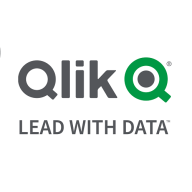

Find out in this report how the two Data Integration solutions compare in terms of features, pricing, service and support, easy of deployment, and ROI.
| Product | Market Share (%) |
|---|---|
| Qlik Replicate | 2.3% |
| Informatica PowerCenter | 6.0% |
| SSIS | 5.7% |
| Other | 86.0% |
| Product | Market Share (%) |
|---|---|
| SAP Process Orchestration | 6.4% |
| IBM Sterling B2B Integration Services | 15.1% |
| webMethods.io | 11.9% |
| Other | 66.6% |


| Company Size | Count |
|---|---|
| Small Business | 9 |
| Large Enterprise | 10 |
| Company Size | Count |
|---|---|
| Small Business | 8 |
| Midsize Enterprise | 3 |
| Large Enterprise | 26 |
Qlik Replicate is a data replication solution for replicating data from one source database to another for business intelligence software. It offers data manipulation and transformations, replication without impacting source databases, and ease of use without needing ETL. The solution is stable and user-friendly, with detailed logging and support.
Qlik Replicate has improved the organization by allowing each team to replicate their data into a single-source data location. The most important feature of Qlik Replicate is its ability to replicate and update records without needing a programmer.
We monitor all Data Integration reviews to prevent fraudulent reviews and keep review quality high. We do not post reviews by company employees or direct competitors. We validate each review for authenticity via cross-reference with LinkedIn, and personal follow-up with the reviewer when necessary.